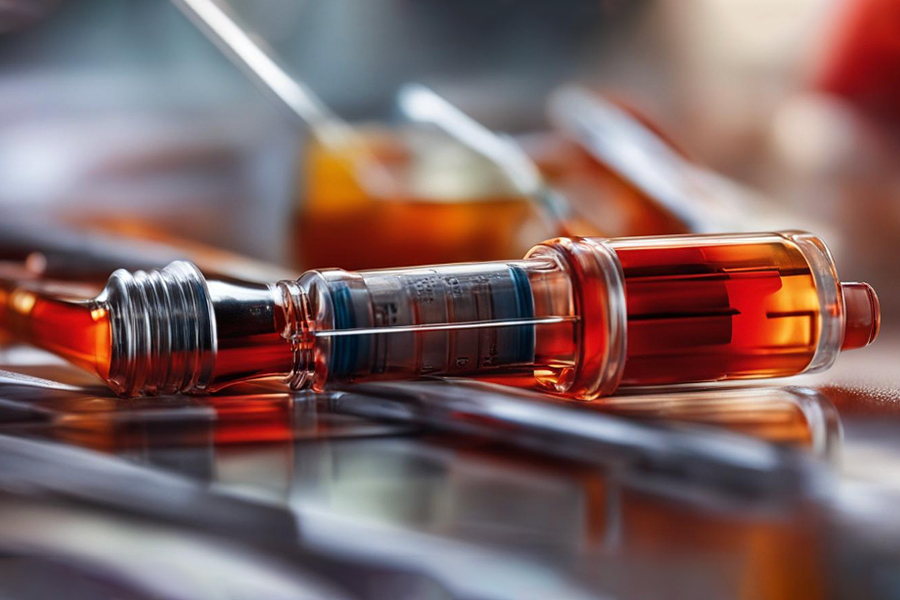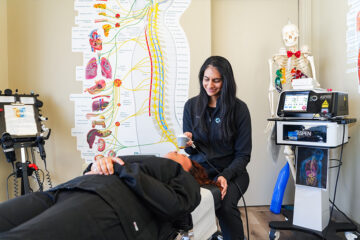Is Testosterone Replacement Therapy Safe? – Get the Facts

Testosterone replacement therapy (TRT) is a treatment option for men with low testosterone levels. But is it safe? Let’s explore the risks, benefits, and safety considerations of TRT is TRT safe?
Key Takeaways:
- Testosterone replacement therapy (TRT) is a treatment option for men with low testosterone levels.
- TRT can be delivered through various methods, including injections (TRT injections).
- Benefits of TRT include improved muscle mass, increased energy levels, and enhanced sexual function.
- Potential risks of TRT include acne, fluid retention, sleep apnea, and an increased risk of blood clots.
- Consulting with a healthcare professional specializing in hormone therapy for men is recommended before starting TRT.
Understanding Testosterone Replacement Therapy
Testosterone replacement therapy (TRT) is a treatment designed to restore testosterone levels in men with low levels of this hormone. It can be administered through various methods, including TRT injections. TRT has been shown to provide several benefits, such as improved muscle mass, increased energy levels, and enhanced sexual function.
“TRT injections are one of the most common methods of delivering exogenous testosterone,” says Dr. Smith, a hormone specialist.
“These injections allow for precise dosing and are typically administered every one to two weeks.”
TRT injections are considered an effective way to restore testosterone levels and provide quick relief from symptoms associated with low testosterone.
However, it’s important to weigh the potential risks and safety considerations of TRT in Tampa FL. Like any medical treatment, TRT comes with potential side effects. These may include acne, fluid retention, sleep apnea, and an increased risk of blood clots. It is crucial to discuss these risks with a healthcare professional before starting TRT, as they can provide personalized guidance and support throughout the treatment. side effects of testosterone replacement therapy.
To ensure the safety and effectiveness of TRT, monitoring testosterone levels and adjusting the dosage accordingly is essential. Regular check-ups with a healthcare professional specializing in hormone therapy can help assess the progress and minimize any potential risks associated with TRT. Remember to consult with a qualified healthcare provider to evaluate the benefits and risks of TRT based on your individual needs.

Benefits of Testosterone Replacement Therapy:
- Improved muscle mass
- Increased energy levels
- Enhanced sexual function
Risks of Testosterone Replacement Therapy:
- Acne
- Fluid retention
- Sleep apnea
- Increased risk of blood clots
The Safety of Testosterone Replacement Therapy
When considering testosterone replacement therapy (TRT), it is crucial to understand the potential risks and safety considerations involved. While TRT can be effective in treating low testosterone, it is not without its side effects and risks. It’s important to weigh the benefits against the potential risks before starting this treatment.
Some common side effects of TRT include acne, fluid retention, sleep apnea, and an increased risk of blood clots. These side effects can vary in severity and may not affect every individual. However, it is essential to be aware of the potential risks and address them promptly with your healthcare provider.
Monitoring testosterone levels and adjusting the dosage accordingly can help minimize the risks associated with TRT. Regular follow-ups with your healthcare provider are necessary to evaluate the treatment’s effectiveness and monitor any adverse effects that may arise as you undergo TRT.
Come speak to us about the safety of testosterone treatment at Invigorate Wellness Medical
Examining the Evidence
When it comes to evaluating the safety of testosterone replacement therapy (TRT), it’s important to consider the available evidence. Numerous studies and trials have been conducted to assess the risks and benefits of this treatment option.

One notable study is a phase 1 trial of an investigative oral mitapivat, which showed promising results in patients with sickle cell disease. Over a two-year period, the trial reported no discontinuations or deaths associated with the treatment, indicating that it was generally safe and well-tolerated. Furthermore, the study demonstrated sustained improvements in hemoglobin levels and other markers of disease, suggesting the potential effectiveness of TRT in this context.
“The phase 1 trial of oral mitapivat provides encouraging evidence of the safety and potential benefits of testosterone replacement therapy. These findings pave the way for further research and exploration of TRT as a treatment option for individuals with sickle cell disease.”
The Benefits of Testosterone Replacement Therapy
Aside from the aforementioned trial, there have been other studies highlighting the benefits of TRT. Research has shown that testosterone replacement can lead to increased muscle mass, improved energy levels, and enhanced sexual function in men with low testosterone levels.
- Improved muscle mass
- Increased energy levels
- Enhanced sexual function
These positive outcomes make TRT an appealing option for individuals experiencing the symptoms of low testosterone.
Considering Safety and Effectiveness
While the evidence suggests the potential benefits of TRT, it’s crucial to consider the safety and effectiveness of this treatment on an individual basis. Consulting with healthcare professionals who specialize in hormone therapy for men, such as invigorate-wellness.com, can provide personalized guidance and support.
“At invigorate-wellness.com, we prioritize the safety and well-being of our patients. Our team of experts can assess your specific needs and help you make an informed decision about testosterone replacement therapy.”
By evaluating the evidence and seeking professional advice, individuals can make informed decisions regarding the use of testosterone replacement therapy for their specific circumstances.
Conclusion
In conclusion, testosterone replacement therapy (TRT) can be a beneficial treatment option for men with low testosterone levels. It offers the potential for improved muscle mass, increased energy levels, and enhanced sexual function. However, it’s crucial to consider the potential risks and safety considerations associated with TRT.
Before starting TRT, it is important to consult with a healthcare professional who specializes in hormone therapy for men. They can provide personalized guidance and support, ensuring that TRT is safe and appropriate for your specific needs.
At invigorate-wellness.com, we understand the importance of prioritizing your safety and well-being. Our team of experts is dedicated to providing comprehensive care and helping you make informed decisions about hormone replacement therapy. Contact us today to learn more about the safety and effectiveness of testosterone replacement therapy.
FAQ
What is testosterone replacement therapy (TRT)?
Testosterone replacement therapy (TRT) is a treatment option for men with low testosterone levels. It involves the administration of exogenous testosterone to restore testosterone levels in the body.
What are the benefits of testosterone replacement therapy?
Testosterone replacement therapy has been shown to have several benefits, including improved muscle mass, increased energy levels, and enhanced sexual function.
Is testosterone replacement therapy safe?
Testosterone replacement therapy carries some potential risks, including acne, fluid retention, sleep apnea, and an increased risk of blood clots. It’s important to carefully evaluate the risks and benefits of TRT before starting the treatment.
How can the risks of testosterone replacement therapy be minimized?
Monitoring testosterone levels and adjusting the dosage accordingly can help minimize the risks associated with testosterone replacement therapy. Regular evaluations and consultations with a healthcare professional are essential.
Are there any studies on the safety of testosterone replacement therapy?
Yes, several studies and trials have been conducted to assess the safety of testosterone replacement therapy. For example, a phase 1 trial of an investigative oral mitapivat showed that it was generally safe and well-tolerated in patients with sickle cell disease.
Where can I find personalized guidance and support regarding the safety and effectiveness of testosterone replacement therapy?
Consulting with a healthcare professional who specializes in hormone therapy for men, such as invigorate-wellness.com, can provide personalized guidance and support regarding the safety and effectiveness of testosterone replacement therapy.
Leave a reply
You must be logged in to post a comment.










